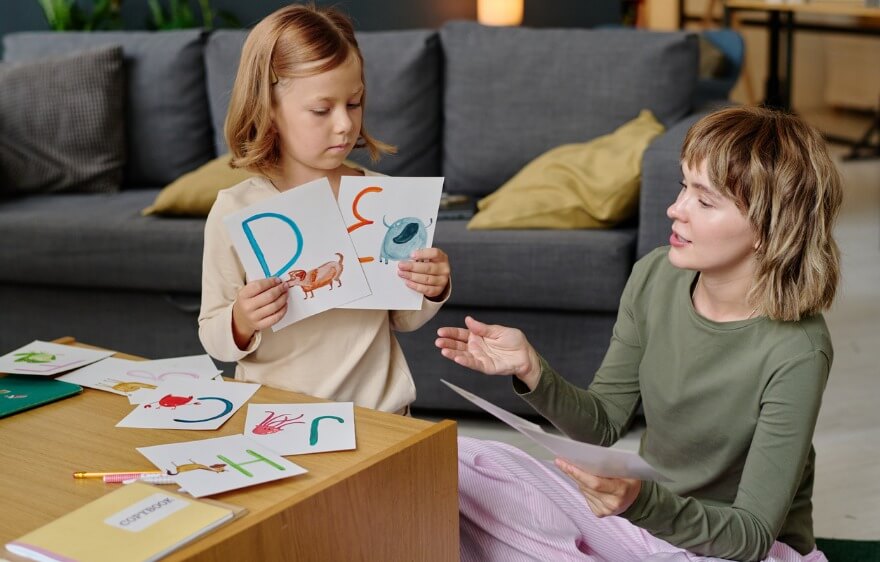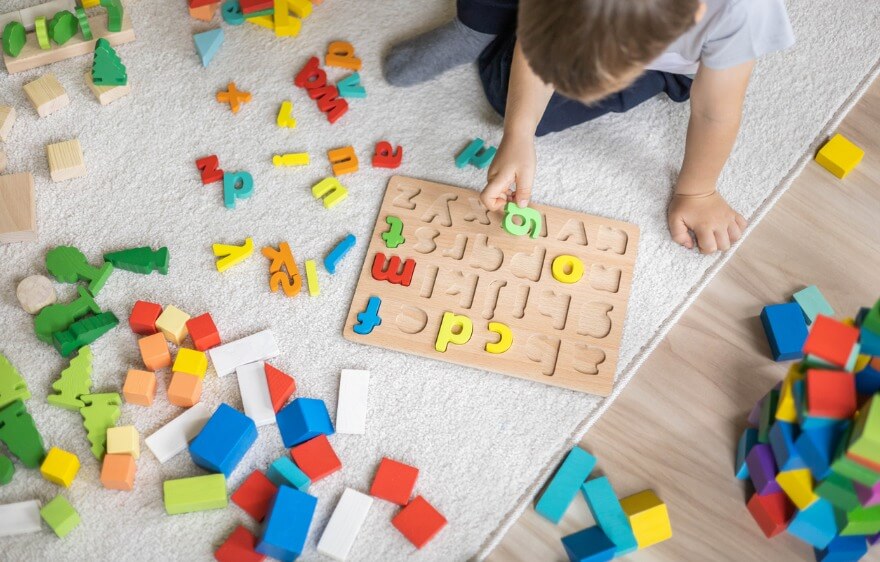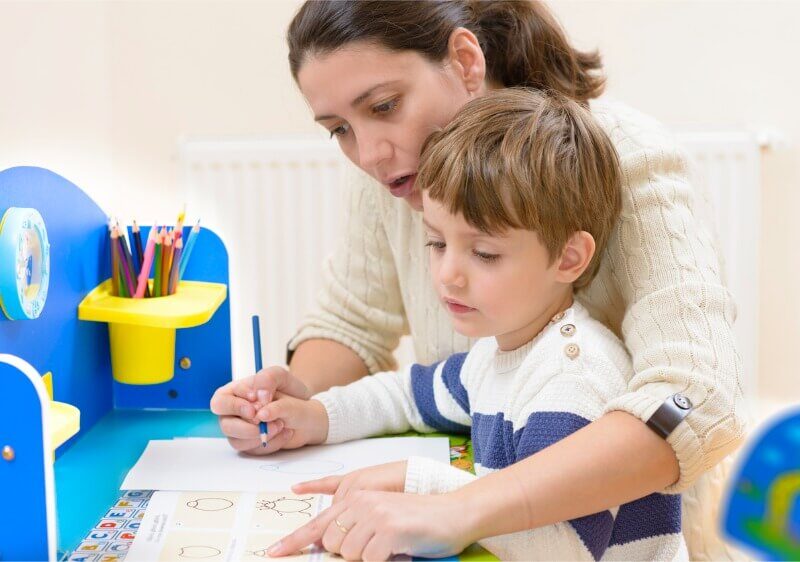As parents, we are always on the lookout for signs that our children are growing and thriving. Whether it’s watching them take their first steps, hearing their first words, or seeing them master new skills, each milestone is exciting and sometimes, a little nerve-wracking. One area that can cause concern for many parents is speech development. It’s normal to wonder if your child is developing communication skills at the right pace or if they might need a little extra help.
If you’re asking yourself, “Does my child need speech therapy?”, you’re not alone. Many parents have this same question. The good news is, there are clear signs to look for, and getting the right help early on can make a world of difference. In this post, we’ll go over some common factors that influence speech development and share 12 signs that may indicate your child could benefit from speech therapy.
Does My Child Need Speech Therapy?
Children typically follow a broad range of speech and language development milestones, but if your little one is consistently falling behind in communication or showing frustration when trying to speak, it could be time to explore speech therapy. Pediatric speech therapy is designed to help kids with speech delays or language disorders and can be a crucial intervention in ensuring your child can communicate effectively as they grow.
Now, let’s dive into what can affect speech development and how you can better answer the question, “Does my child need speech therapy?”
Factors That Influence Speech Development
Before jumping into the signs that determine whether a child needs speech therapy, it’s important to understand the many factors that influence a child’s speech and language development. Here are some of the key contributors:
Developmental Milestones
All children develop at their own pace, but there are general speech milestones that most children hit at certain ages. These include things like babbling by six months, saying first words around 12 months, and forming simple sentences by age two to three. If a child isn’t hitting these milestones, it may be a sign of a delay.
Hearing
Hearing plays a significant role in how children learn to speak. Children learn to talk by hearing others, so if there is any hearing impairment, it can affect how they pick up speech and language. Chronic ear infections or undiagnosed hearing loss can result in delayed speech development.
Environment
Children who are regularly spoken to, read to, and engaged in conversation tend to develop speech skills faster. If a child isn’t exposed to much language, there are fewer opportunities to practice, which can slow speech development.
Family History
Speech and language delays can sometimes run in families. If you or your partner experienced speech challenges as a child, there’s a higher likelihood that your child may also experience similar delays.
Personality
Some kids are naturally more talkative, while others may be quieter by nature. More introverted children might take longer to speak confidently and clearly, while more extroverted children might be more vocal early on but still struggle with clarity or structure.
12 Signs Your Child Needs Speech Therapy
So, when should you consider speech therapy? While every child develops at their own pace, the following signs may indicate that your child could benefit from the expertise of a speech therapist:
1. Limited Babbling as a Baby
Babbling is an important early stage of language development. Babies usually start making repetitive sounds like “ba-ba-ba” or “ma-ma-ma” by about the age of six months. If your baby isn’t babbling much or at all by this age, it could be a sign of delayed speech development.
2. No Words by 18 Months
While every child learns to speak at their own pace, most children can say at least a few words by 12 to 18 months. If your child hasn’t said their first word by 18 months, it might be worth discussing with a pediatrician or speech therapist.
3. Difficulty Making Certain Sounds by Age Three
By age three, most children are able to form simple sentences and can be understood by family members. If your child struggles with certain sounds — like “p,” “b,” “m,” or “d” — or if they’re hard to understand even to people who know them well, speech therapy could help improve their articulation.
4. Limited Vocabulary
By the age of two, children should have a vocabulary of around 50 words and be starting to form simple two-word phrases like “more juice” or “big truck.” If your child isn’t using many words or only has a handful of words by this age, they may be experiencing a speech delay.
5. Difficulty Following Directions
Understanding and following directions is a key part of language development. If your child has trouble following simple instructions like “pick up the toy” or “sit down” by the age of two to three, it could indicate a language comprehension issue, which is something speech therapy can address.
6. Frustration During Communication
If your child gets visibly upset or frustrated when they try to talk, it may be because they’re having difficulty expressing themselves or because they feel like they aren’t being understood. Frequent communication frustration is a common sign that a child could benefit from speech therapy.
7. Stuttering or Prolonged Pauses
It’s not unusual for children to stumble over their words when they’re learning to speak, but if stuttering persists beyond the age of three to four, or if your child has frequent, long pauses while trying to form sentences, this could be a sign of a speech fluency disorder.
8. Mispronouncing Many Sounds
By the age of four, most children should be able to pronounce many of the basic speech sounds correctly. If your child is still struggling with a variety of sounds — like “r,” “s,” “l,” or “th” — past this age, speech therapy may help them improve their articulation.
9. Talking Less Than Other Kids Their Age
If you notice that your child talks significantly less than their peers or uses much shorter sentences, this could be a sign of a language delay. Speech therapy can help children learn to expand their vocabulary and communicate more effectively.
10. Echoing or Repeating Words
Some children with speech delays or disorders will repeat what you say without adding new information or creating their own sentences. This is called echolalia. While some repetition is normal in early language development, frequent echoing could be a sign of a language disorder or autism spectrum disorder (ASD).
11. Not Responding to Questions
By the age of three, children should be able to respond to basic questions like “What’s your name?” or “What do you want to eat?” If your child struggles to answer questions appropriately or often repeats the question back to you instead of answering, speech therapy may be needed to address a language comprehension issue.
12. Difficulty Socializing or Playing with Others
Speech delays can impact more than just how clearly your child speaks — they can also affect how they interact with others. If your child avoids playing with other kids, has trouble making friends, or struggles to communicate during play, speech therapy could help them develop the language skills they need to connect with others.
When to Seek Help
If you see any of the signs that a child needs speech therapy mentioned above, it’s a good idea to talk to your pediatrician or consult a speech therapist. Early intervention can make a huge difference in helping you and your child set goals to overcome speech and language delays, and many kids who receive speech therapy go on to develop strong communication skills as they grow.
Why Early Intervention Matters
The earlier you identify and address a speech or language issue, the better. Children’s brains are incredibly adaptable, especially in the early years. When a child receives speech therapy early on, it can help them catch up to their peers and reduce frustration as they learn to communicate effectively.
Speech therapy isn’t just about learning to say words correctly — it’s also about understanding language, forming sentences, and developing the social skills needed to interact with others. By working with a speech therapist, children can gain the confidence they need to express themselves clearly and build strong communication skills for life.
How Speech Therapy Works
Speech therapy is tailored to each child’s individual needs. A speech therapist will evaluate your child’s speech, language, and social communication skills to create a set of speech therapy goals and a plan that works for them. Therapy sessions often include fun activities like games, storytelling, and play that encourage children to practice their speech and language skills in a supportive, interactive environment.
Parents also play a key role in the success of speech therapy. Therapists will often give you strategies to use at home to reinforce what your child is learning, helping them make even faster progress.
Trust Your Instincts
As a parent, you know your child better than anyone. If you feel that something isn’t quite right with your child’s speech development, trust your instincts and don’t hesitate to seek help. Speech therapy can be an incredibly effective tool in helping children develop clear, confident communication skills. Whether your child is struggling with pronunciation, language comprehension, or social communication, early intervention can make all the difference.
Remember, every child develops at their own pace, and speech therapy can be a fun, engaging way to help your little one along their journey. Keep encouraging, keep reading, and keep the conversations going — you’ve got this!
Schedule Your Child’s Care Assessment Today
At Care Options for Kids, we understand the unique challenges of caring for a child with health conditions. Our dedicated team of pediatric home health nurses is here to support your family with compassionate, expert care tailored to your child’s needs. Contact us today to schedule an assessment and learn how we can help you navigate this journey with confidence and care.
Click here to start your journey to better care.
This post is for educational and informational purposes only. You should always speak with your own therapist before implementing this information on your own.






